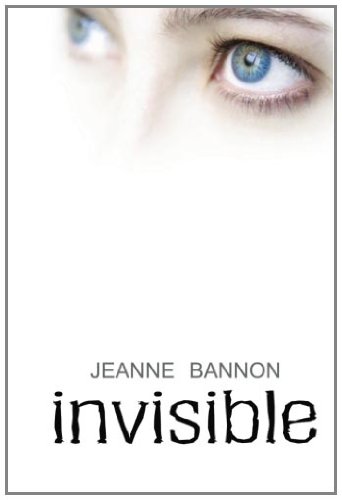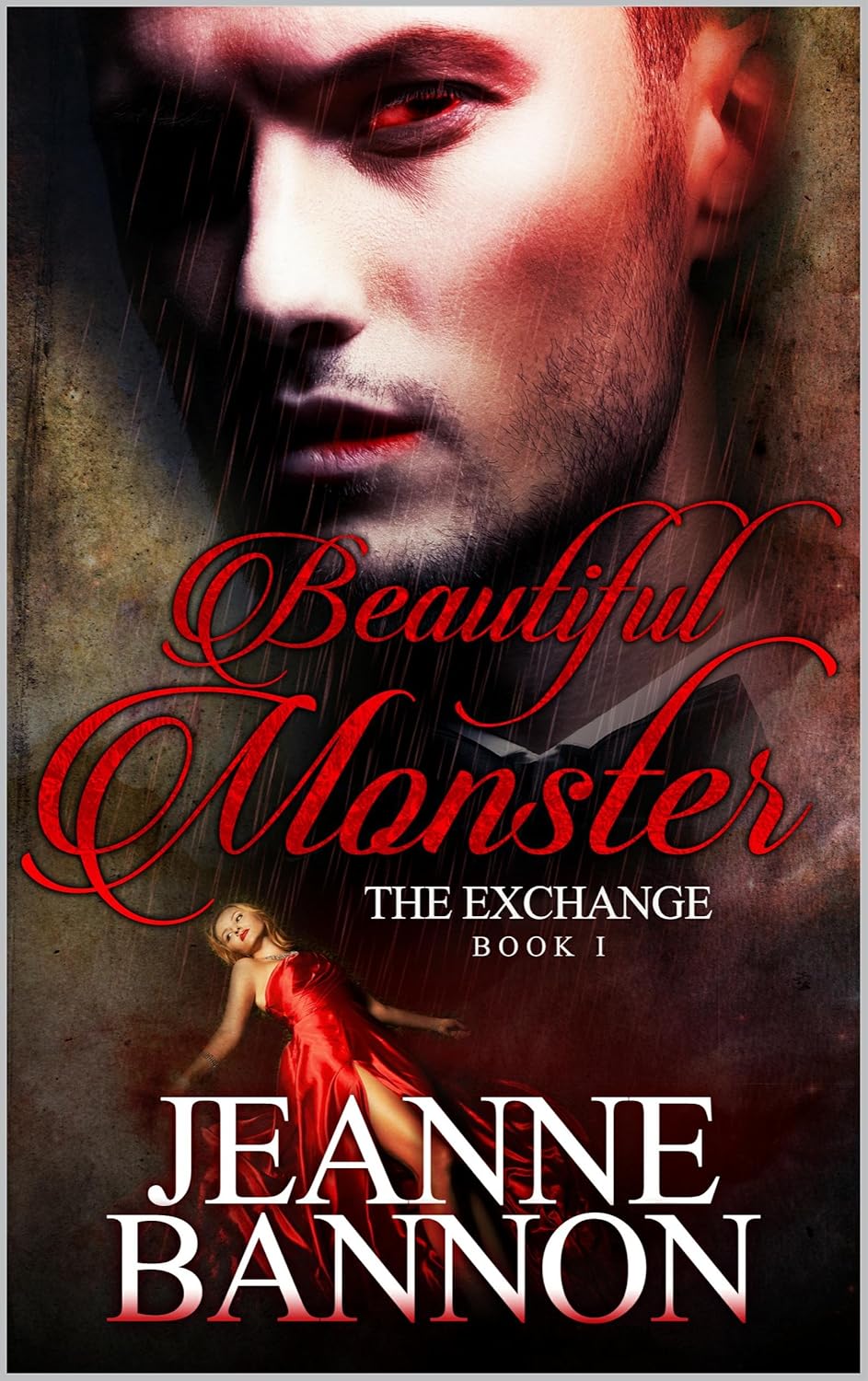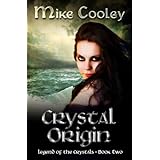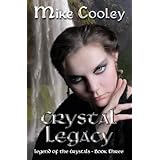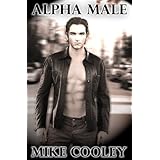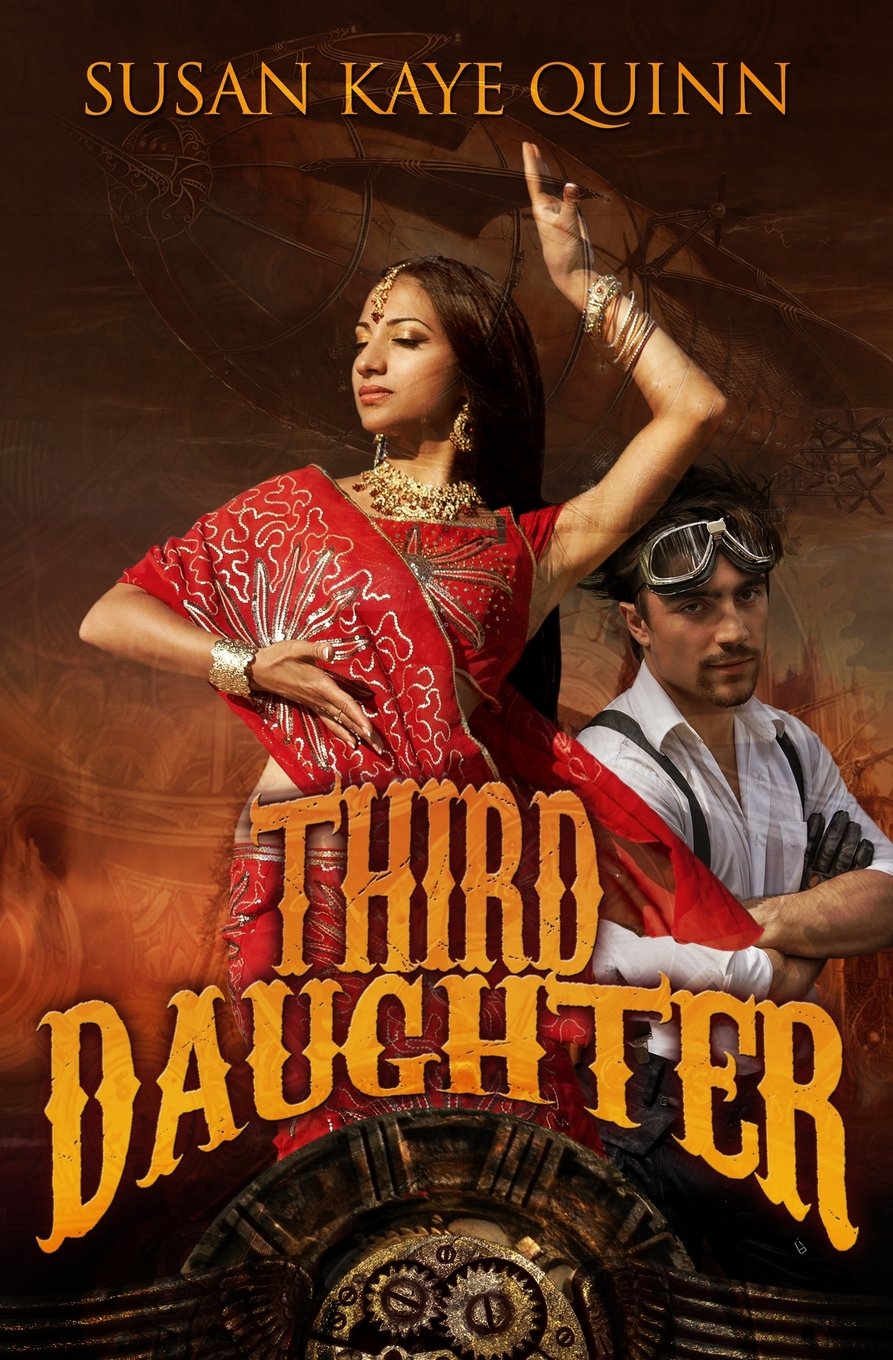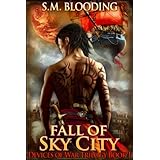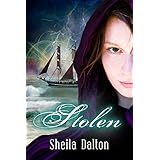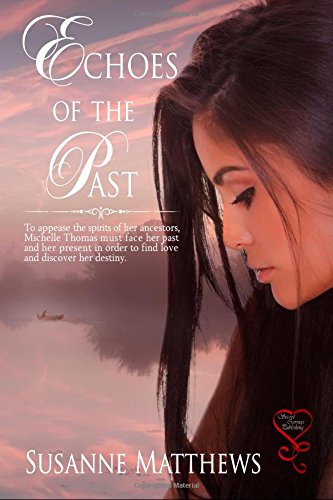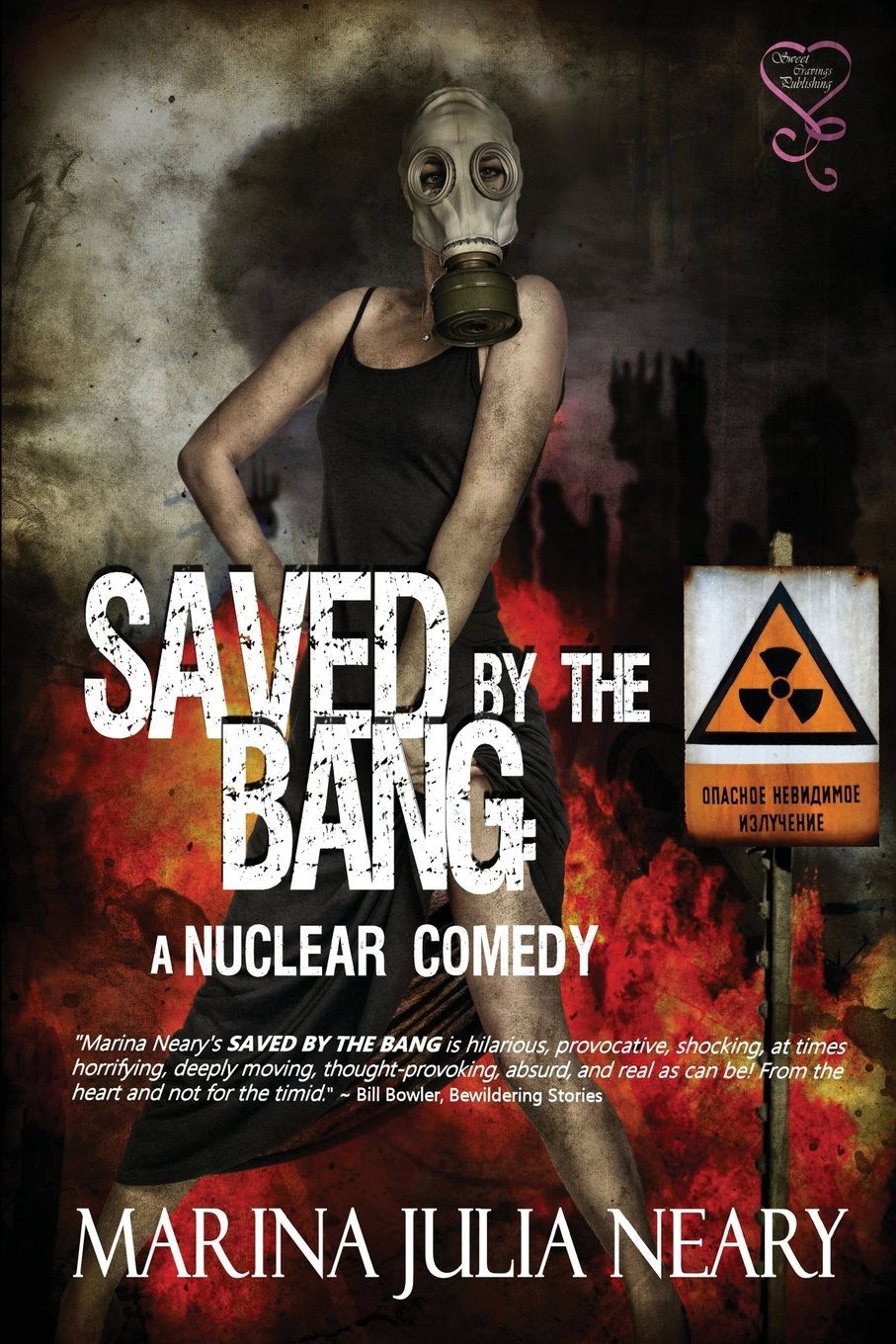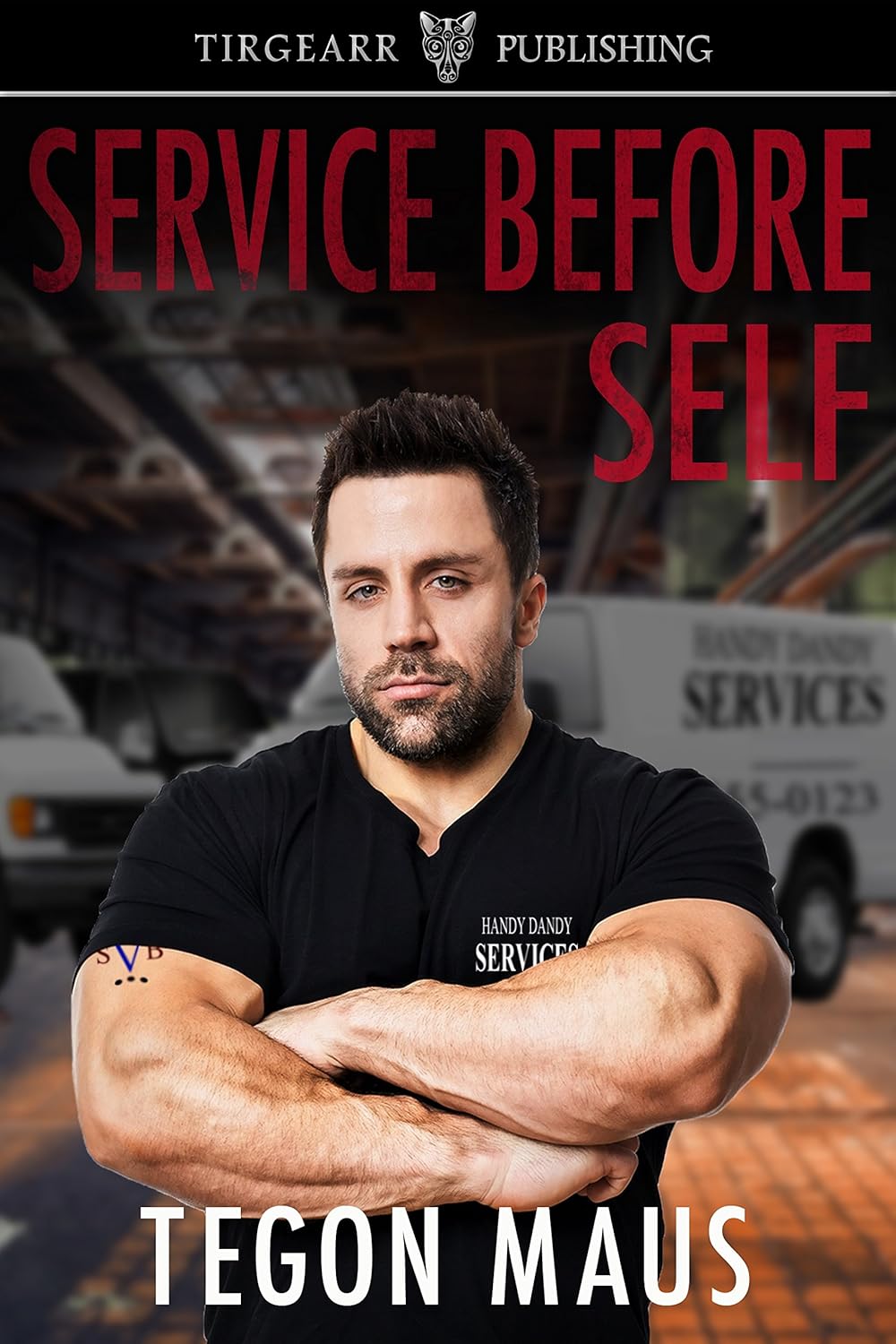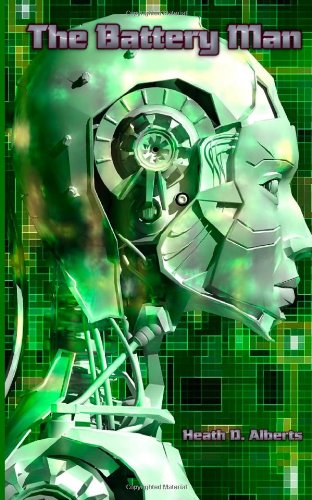Say hello to my friend and fellow-writer from down-under, Kellie Wallace. 2015 has been a productive year for her. One of her recent releases is a historical novel set during WWII, Her Sweetest Downfall.
The synopsis
At the height of the London Blitz, Viola Craft, a sexually repressed
young woman is trapped in a loveless marriage to her God fearing husband
Vernon. She spends her days working in her mother's dress shop while
Vernon pulls the dead from the rubble with his rescue crew.
Their marriage is turbulent and Viola feels pressured to bear a
child. After failed attempts, Vernon believes she's barren and alienates
himself from their marriage.
One night during an air raid, she meets alluring German born
Kristoff Richter. They make an in-stant connection. He's young, good
looking and emphatic. They embark on an illicit affair that leads to
tragic consequences.
My thoughts
I am delighted to finally see this work in print. I had the pleasure of
reading the early draft, under a different provisional title at the
time, and I had no doubt that this novel would eventually find a home
with a publisher who would not be so concerned about sticking the novel
into one particular niche. The cover is overtly erotic, tastefully so.
I'm thankful that it's handled in a blue-grey color scheme. Full color
covers featuring naked lovers definitely belong in the erotic romance
section, and Her Sweetest Downfall goes beyond that genre.
In
genre fiction, characters are more black and white. Their actions
are a little too consistent with their beliefs. Genre fiction relies
heavily on stock characters and situations, generic conflicts with
generic resolutions. In psychologically authentic fiction that is more
reflective of real life, people's actions are often paradoxical.
Morality is very conditional and fluid - very much like human loyalty
and affection.
As a critical reader who focuses on the form and
style, I appreciate the skillful juxtaposition of universal, impersonal
evil, which is used as a back splash in the novel, and the pedestrian,
trivial, everyday acts of brutality that people commit against each
other. The cliche assumption is that war brings people together and
makes them set their personal petty differences aside. And it's true to
some extent that the character do engage in activities to benefit their
country. Still, that doesn't stop them from abusing those closest to
them. They risk their lives rescuing victims of bomb raids, and then
they resume cheating, raping, beating and insulting. Take Vernon, the
husband of the female protagonist Viola's, a man who digs through debris
with his own hands to look for potential survivors, and then comes home
to make his wife miserable. Every tyrant has a pathetic side. Vernon
carries around a bundle of insecurities regarding his masculinity, his
ability to sexually satisfy and/or impregnate his wife. He views
divorce as a great sin, yet that does not stop him from taking a
mistress and trying to start a family with her. Another example is
Lori, Viola's friend, who mourns the death of her infant love child in
France, "Losing a child destroys you" - after having terminated three
previous pregnancies.
Still, the most contradictory character is
Viola herself. Even after falling for the charms of a German-born
milkman, she is not too hasty to sever the ties to her boorish husband.
Having allegedly found the love of her life, she still hesitates to make
the final leap, so for a while she ends up sitting on two chairs.
Interestingly enough, her state is far from agonizing. In a way, she
enjoys the duplicity of her situation and the uncertainty of her unborn
child's paternity. In a traditional romance novel, the heroine would be
tormented by guilt and barely tolerating the bedroom duties with her
husband. However, Viola learns to derive pleasure, excitement and a
certain sense of empowerment from her duplicitous sex life. For once she
understands what cheating husbands experience. In Her Sweetest Downfall, the author exposes the glorious hypocrisy of human nature.
Sunday, May 31, 2015
Friday, May 29, 2015
Being invisible - oh, the possibilities! - interview with Jeanne Bannon-Repole.
Today I am pleased to welcome a Canadian author Jeanne Bannon-Repole whose debut novel Invisible was optioned for a film. Jeanne opens up about the real life angst and heartbreak behind her sensational novel. It's currently being edited and revamped, so if you want to obtain a copy of it, please contact Jeanne directly.
MJN: Undoubtedly, you have read H.G. Wells' influential sci-fi novel, The
Invisible Man,
in which the protagonist, a chemistry prodigy, Griffin makes
himself invisible as means of gaining impunity and power. In your novel, Invisible, you explore the common teenage fantasy
of vanishing. It's no secret that many teens, even those who do not
experience a lot of social rejection, think about suicide. Usually those
thoughts do not lead to action. But in a way, becoming invisible is a
form of social suicide, one that's morally more acceptable, because you don't
cease to exist for yourself - just for the rest of the world.
JB: I suppose
you’d just like me to comment on your statement?
Actually, I have not
read The Invisible Man. I wrote Invisible because I was a victim of
bullying when I was in grade 7 and 8. It was purely a cathartic endeavor for
me. I wrote it quickly, in only six months, and it was picked up by the first
publisher I sent it to. I was incredibly lucky. I’ve learned since then, that
writing is not an easy profession and is fraught with challenges.
By writing Invisible, I chose a character who was physically
different from me but possessed some of my traits. Lola Savullo is tall and
overweight. I’m neither. I didn’t want readers, especially those who know me,
to think it was autobiographical. It does however, contain a few tidbits from
my own experiences. Though it really is a work of pure fiction. I want those
who read it to be able to identify with Lola’s struggles as well as those of
her sexually ambiguous best friend, Charlie. I hope I’ve helped a few people
with the positive message Invisible
conveys.
MJN: Congratulations on having Invisible optioned for film. Can
you tell us what the process of optioning involves? There are many
writers who think that selling movie rights automatically guarantees that a
movie will be made.
JB: A little
over two years ago I was on top of the world. I’d just signed a contract for a
movie option. I was given a bit of money for signing and was told Invisible was being turned into a
screenplay and pitched to CBS and Netflix. What more could a writer want?
However, that all changed just a month ago when I got the news the company
holding the movie rights closed down. The movie rights reverted to me. Guess I
can’t give much insight as to the process as nothing came of the option.
MJN: Say, in a perfect world, if your novel were to be made into a movie, which actress would you pick to play Lola? If you had any say in the casting process, would you opt for a big name or a relatively obscure name? Based on Lola's physical description, she is not exactly a traditional Hollywood beauty. Sometimes it's hard for a young actress who does not correspond to the standards to break into mainstream roles. You would probably be dealing with character actresses. Or a traditional 5'10" beauty who would be willing to pack on 50 lbs for the role!
JB: I have
given this a bit of thought but could never think of anyone to play Lola. I
don’t think girls/women of her size and height are common leads for Hollywood
movies. You’re right about the character actor thing. Lola would more than
likely be played by an unknown or an actor just starting out.
MJN: Let's talk about what makes someone an easy target for the
peers. It's interesting that most male bullying victims are presented as
puny. But for girls, it seems that the criteria is opposite. A tall and
big-boned girl can come across as very vulnerable. As you can
probably tell, the subject is very sensitive for me. Growing up, I
suffered socially, in spite of my many apparent advantages. I was petite,
always got good grades in school, had two successful parents who bought me
fashionable clothes. And yet I still was at odds with my peers, sometimes
violently. I've been trying to figure out what makes someone a victim, or at
least puts someone at risk for victimhood.
JB: As I
wrote above, I, too, was a victim of bullying and can understand your pain. I
tried to fit in; wore the ‘right’ clothes, etc., but it didn’t work. It’s as if
bullies sense vulnerability and pick on kids who are easy targets. For me, the
bullying began when we moved. I came from a great school and the new one was
less than stellar. I was a high achiever academically and the kids in my class
saw that as a reason to pick on me. I even dumbed myself down for a little
while, but it seemed nothing I did was good enough. I’m happy now, of course,
because I wouldn’t want to be like those who picked on me.
I believe I was a victim
because I didn’t speak up for myself. I never told a teacher (though, I think
they knew), and never told my parents. I thought I was being bullied because
something was wrong with me. I felt it was my fault.
Over the years, I’ve
seen a huge change in bullying awareness and tolerance. I know it still exists
but we, as a society, are not sweeping it under the rug like we used to. It’s
not a verboten subject anymore, and for that, I’m grateful.
MJN: I understand your latest project in the works is a paranormal
thriller with a working title Dark Angel.
Do you have any concerns about your novel standing out, since there are quite a
few items on the market with the same title, including a TV series with Jessica
Alba?
JB: Dark Angel has been in the works for about six or seven years now. It
is the first novel I wrote but I keep putting it on the back burner because of
its complexity. It’s the story of a female vigilante who’s tasked with
murdering a kingpin of an elitist group. A group set on reducing the world’s
population to suit their own needs. Think illuminati meets Nikita. It’s close
to being completed, however, there are a few problems that need resolving. I’m
not sure it will ever be done.
I’m not concerned with Dark Angel standing out. It’s unique and
I’ve never seen or read anything like it. As for the title, well, it can be
changed and they often are once a publisher gets a hold of the manuscript.
That said, I’m working
on other projects as well. I’ve written a novella entitled, Beautiful Monster — The Exchange (Book One) about a vampire whose mortal
lover dies. He wants to be with her in the afterlife but cannot since he’s
soulless. I’ve started Book Two and want to have that completed by the end of
the summer. I also have a few other projects on the go. I guess I should pick
one and stick with it.
I work as a freelance
editor/proofreader and it’s difficult to find time to work on my own projects.
Saturday, May 23, 2015
Author Mike Cooley on the archetypal power of crystals
A very warm welcome to Mike Cooley, an author of science fiction and fantasy, a passionate dreamer and a skilled wordsmith. Over the course of the interview I found out that he and I have a lot in common as far as our tastes in speculative fiction and film are concerned. Thank you, Mike, for taking the time to talk to us about your Legend of the Crystal series.
MJN: There are so many fantasy novels featuring crystals.
I've often asked myself about the roots of our fascination with crystals as
vessels of mystical powers. There must be some Jungian explanation behind it.
It's in our psyche to tremble before a hard, glowing cluster of minerals.
MC: I agree. There is
something about light reflecting through crystal that touches us in an ancient
way, like the flickering flames of a fire protecting the entrance to our cave.
I’ve always been fascinated with
artifact stories, where the artifact is mysterious and has powers. In Crystal
Warrior I wanted the source of magic to manifest itself in many different ways.
Originally there were supposed to be eight crystals, but I realized that would
make things a bit too complicated, so I settled on six. Each crystal has a
color, a power, and a god or goddess that it represents. And although the
temples to the gods have crumbled over the centuries, the legends remain. Here
are the crystals, their alternate names, their colors, their powers, and the
gods they represent:
·
Crystal of Foreboding (Spirit of Kiefer) — White, future sight, Kiefer
(God)
·
Crystal of Accuracy (Eye of Gort) — Red, accurate aim, Gort (God)
·
Crystal of Healing (Hand of Malkt) — Green, self-healing and healing
others, Malkt (Goddess)
·
Crystal of Time (Skull of Platkar) — Gold, temporary time stop, Platkar
(God)
·
Crystal of Illusion (Skin of Serna) — Silver, invisibility & changing
appearance, Serna (Goddess)
·
Crystal of Love (Heart of Palnk) — Purple, makes others love and obey you,
Palnk (Goddess)
MJN: When you come up with fictitious names of places and
species of birds and animals, is there any particular ethos you draw your
inspiration from? For instance, do you seek to make them sound Native American,
or Celtic, or Arabic, or Greek?
MC: That’s a tough
question! In the Legend of the Crystals series I tried to make the names fit
the characters, while not making them sound too Earth-like. Since the story
takes place far across space on a planet that has never heard of Earth I didn’t
think the characters should have common names. Larissya, of course, is a fairly
normal name, but many of the others are not. In particular there is a magical
creature named Taradahn. I named him that because he is similar to a
pterodactyl in some ways and I liked the way the name sounded. Often with names
I go with hunches and how they sound. I also try to avoid using names that are
hard to pronounce, as I think that gets annoying for the reader. The Widgen—who
are kind of like tree elves—have more whimsical names, like Jinga, as I thought
that fit in better with their personalities.
MJN: In your biography
you say that you enjoy to explore the dark and surreal landscapes of the mind.
Can you name a few of your favorite filmmakers? I imagine you would be a fan of
Lynch and Cronenberg.
MC: I love this question!
I am heavily influenced by dark fantasy and science fiction. When it comes to
filmmakers, you are correct, Lynch and Cronenberg are near the top of my list
along with Kubrick, Ridley Scott, John Carpenter, Paul Verhoeven, and Joss
Whedon--to name a few. Some of my favorite films are: Bladerunner, Alien,
Serenity, and The Matrix.
MJN: Your Crystal series feature the same model on the cover.
Would you say your readership for that particular series is predominantly
female?
MC: I wish I knew! From
the reviews and emails I get I think it’s about 60/40, with females in the
lead. Those covers were done for me by a friend, and she sent me a few choices
to choose from for the model. Then, once I chose the model, there were a
limited number of shots to choose from for books two and three. I wanted it to
look like she was growing up a bit from book to book since the timeline from
book one to book three is a number of years. All I knew before the cover was
created was that I wanted her to look like a teenager with long dark hair and
green eyes. I sent the first four chapters to my friend and asked her to use
her best judgment about what model would work.
MJN: If you could
introduce an element of magic into our reality, any element, what would it be?
Can you think of a particular supernatural talent? Would it be granted to
everyone to the same degree, or would it have to be earned by the select few? How
would it potentially upset the balance of things?
MC: I’m a firm believer
that magic needs to be limited, and that using it shouldn’t be “free”. If there
isn’t a price to pay then I think it’s less dramatic and feels more like a
cheat to get the author or characters out of a jam. When it comes to magic in
our reality, I would introduce a healing ability like Melanie has in my
novella, Alpha Male. And it would be rare, which would make it very sought
after. I’m torn between whether it should be earned or inherent, but I lean
toward inherent but hidden until triggered by something. A magically augmented
empathy like that, where a person is willing to take another’s pain in an
effort to save them appeals to me. And I think it appeals to others, on a deep
level, since almost everyone at one point or another has probably wished they
had that power.
Thursday, May 21, 2015
Susan Kaye Quinn - rocket scientist who writes sci-fi and steampunk
I am beyond thrilled to introduce Susan Kaye Quinn, a rocket scientist, bestselling speculative fiction author, indie publishing mentor, wife, mother of three and fellow cat-lover.
MJN: You have a stunning website. The graphics and the color
scheme evoke images of Ender's Game. The young male model on the cover of your
Singularity 1 novel looks like a mixture of Elijah Wood and Haley Joel Osment. Were
you using those two teen icons as a guide when picking the model for your
cover?
SKQ: Considering I don’t know who Elijah
Wood and Haley Joe Osment are, I’m going with no on that. J But I did
search long and hard to find just the right cover model for my main character
(also named Eli!) – I needed a range of shots, a young man that looked like Eli
in my head, and a model that could emote. I even worked with a
photographer to do a custom shoot to get just the right look. Just when I was
despairing of finding the right model, I stumbled across this talented young
man on a stock photo site. Here are a few of the myriad photos I’ll be pulling
from for covers.
https://www.facebook.com/groups/susankayequinn/permalink/1705867186307196/
MJN: I was intrigued that you got "a bunch of
engineering degrees". My grandma is a retired engineer, and I have a lot
of respect for scientifically-minded people. I'm just a poor English major ;-)
But you seem to have been able to combine your passion for science with your passion
for writing, which resulted in convincing, thought-provoking prose. Do you
consider yourself a scientist who writes or a writer who invents?
SKQ: These days, I’m a writer who
invents – I write full-time and don’t plan to ever stop! I loved doing science
when I was working in the field, but writing is my true calling.
MJN: Let's talk about the esthetics behind your steampunk
trilogy Dharian Affairs. You combine the elements of Bollywood and retro
futurism traditionally associated with British settings. One of the reviewers
dubbed is a Bollypunk. The fusion is far from inconceivable, given that India
was a British colony for a long time.
SKQ: Exactly! When I started writing
Dharian Affairs, moving beyond the British setting of most steampunk was just
starting to happen. Now there’s all kinds of non-British steampunk. One of my
favorites is this Asian-themed fantasy steampunk series by SM Blooding – isn’t
the cover gorgeous?
MJN: You have a blog on indie publishing that offers a wealth
of support for authors contemplating the indie route - or looking to make their
current marketing practices more effective if they are with a small publisher.
Do you get more fan mail from your readers or from other writers who follow
your blog?
SKQ: I get a healthy mix of both – most
of my actual fan (e)mail comes from readers, but I connect with writers every
day on Facebook. And writers are readers, too! I’m a fan of writers like Hugh
Howey (Wool), Jennifer Wells (Fluency), and Annie Bellet (Twenty Sided
Sorceress). These writers are my friends, they inspire me with their business
practices, but I’m a reader-fan as well.
MJN: I'm going to ask
you a question that I asked another author recently. If you could introduce an
element of sci-fi into our reality, any element at all, what would it be? Can
you think of a particular supernatural talent? Would it be granted to everyone
to the same degree, or would it have to be earned by the select few? How would
it potentially upset the balance of things?
SKQ: So many good questions – and ones I
incorporate into my fiction all the time! Relevant to my Singularity series I’m
writing now… I would have to say neural augmentation. My brain needs all the
help it can get! But when it comes (and I think it will), it will turn our
world upside down. When brainpower is what literally runs our world, what will
we do when some select few have access to even more? Or if everyone has the
ability to upgrade… at a price. It’s a shocking thing to think about. And
something I’m going to be writing about this summer.
Tuesday, May 19, 2015
Stolen by Sheila Dalton: an exploration of moral ambivalence
An exploration of a nightmare
As a child I was plagued by a pervasive fear of something horrible happening to my mother. In my nightmares, I would come home to a demolished apartment to find my mother gone. If my mom was running late from work, or if the windows were dark, or if she did answer the phone on the first ring, my imagination would get the best of me. My mom would scoff at my fears, "What, you think I got kidnapped and sold into slavery?" Well, guess what? For the heroine of Sheila Dalton's genre-transcendent novel Stolen this scenario is more than just what night terrors are made of - for her it becomes reality. After a routine trip to the market, she comes home to find her native village ravaged and the inhabitants enslaved. In literature, the scenario of a parent looking for a missing child is explored quite frequently. You don't see as much of the reverse - when a child is looking for his/her parents.
The global landscape of slavery
I applaud the author for highlighting the subject of Christian white slavery in a Muslim country. I know it's very popular and politically correct to demonize the infamous Christian White Male as the enslaver of the world. I'm sure there are some people there who'll tell you that it was the white man who invented slavery. It's really refreshing to see a more balanced picture. Don't get me wrong, there are some very graphic scenes of the Senegalese being chained up and shipped to Morocco. But there are equally graphic accounts of white paupers in England being rounded up and shipped off to the Colonies to work on plantations, and white women being used for breeding "super slaves". Avarice and cruelty know no color.
Beyond genre
I am grateful that the novel is not a swashbuckling pirate tale, nor is it a swoonworthy romance, nor is it a combination of the two. Genre fiction puts the expected plot elements above psychological authenticity. Sheila Dalton's work is a cut above genre fiction.
A study of moral ambivalence
I am also grateful to the author for sparing me, the reader, scenes of melodramatic moral agony, of hair-pulling and chest-beating. The young heroine is refreshingly practical and in touch with her survival instinct. In order to stay alive, she does certain things that contrary to the mainstream teachings of her church - oh, like sex outside marriage, stealing and killing. One by one, she breaks those barriers, experiencing only mild moral discomfort. A less seasoned author might have been tempted to play up the internal conflict. What I got out of this is that we are all whores, thieves and murderers. We can repress those vices to some extent, but if put in a certain environment and forced to choose between our principles and survive, we will most likely choose the latter. The philosophical musings are woven seamlessly into the plot and do not stick out. The characters do not become talking heads for various ideologies.
The only thing I struggled with was Lizbet's repeated allegation that she was "not in love" with either one of the two men she had been intimate with. Her ongoing trail of thought is, "Sure, this guy is kind of interesting, and we have great sex, but it's not love." I have trouble believing that a young girl with limited experience would be able to make that distinction between love and lust. It's something a 35-year old divorcee would be able to identify. Apart from that, the author does not step outside the era.
Overall, "Stolen" is one of the most enjoyable and stimulating books I've read this year.
As a child I was plagued by a pervasive fear of something horrible happening to my mother. In my nightmares, I would come home to a demolished apartment to find my mother gone. If my mom was running late from work, or if the windows were dark, or if she did answer the phone on the first ring, my imagination would get the best of me. My mom would scoff at my fears, "What, you think I got kidnapped and sold into slavery?" Well, guess what? For the heroine of Sheila Dalton's genre-transcendent novel Stolen this scenario is more than just what night terrors are made of - for her it becomes reality. After a routine trip to the market, she comes home to find her native village ravaged and the inhabitants enslaved. In literature, the scenario of a parent looking for a missing child is explored quite frequently. You don't see as much of the reverse - when a child is looking for his/her parents.
The global landscape of slavery
I applaud the author for highlighting the subject of Christian white slavery in a Muslim country. I know it's very popular and politically correct to demonize the infamous Christian White Male as the enslaver of the world. I'm sure there are some people there who'll tell you that it was the white man who invented slavery. It's really refreshing to see a more balanced picture. Don't get me wrong, there are some very graphic scenes of the Senegalese being chained up and shipped to Morocco. But there are equally graphic accounts of white paupers in England being rounded up and shipped off to the Colonies to work on plantations, and white women being used for breeding "super slaves". Avarice and cruelty know no color.
Beyond genre
I am grateful that the novel is not a swashbuckling pirate tale, nor is it a swoonworthy romance, nor is it a combination of the two. Genre fiction puts the expected plot elements above psychological authenticity. Sheila Dalton's work is a cut above genre fiction.
A study of moral ambivalence
I am also grateful to the author for sparing me, the reader, scenes of melodramatic moral agony, of hair-pulling and chest-beating. The young heroine is refreshingly practical and in touch with her survival instinct. In order to stay alive, she does certain things that contrary to the mainstream teachings of her church - oh, like sex outside marriage, stealing and killing. One by one, she breaks those barriers, experiencing only mild moral discomfort. A less seasoned author might have been tempted to play up the internal conflict. What I got out of this is that we are all whores, thieves and murderers. We can repress those vices to some extent, but if put in a certain environment and forced to choose between our principles and survive, we will most likely choose the latter. The philosophical musings are woven seamlessly into the plot and do not stick out. The characters do not become talking heads for various ideologies.
The only thing I struggled with was Lizbet's repeated allegation that she was "not in love" with either one of the two men she had been intimate with. Her ongoing trail of thought is, "Sure, this guy is kind of interesting, and we have great sex, but it's not love." I have trouble believing that a young girl with limited experience would be able to make that distinction between love and lust. It's something a 35-year old divorcee would be able to identify. Apart from that, the author does not step outside the era.
Overall, "Stolen" is one of the most enjoyable and stimulating books I've read this year.
Friday, May 15, 2015
Echoes of the Past - romantic environmental thriller with paranormal elements
Today I am spotlighting a fellow Secret Cravings author Susanne Matthews who has written Echoes of the Past, part ethnic romance, part environmental thriller, part paranormal murder mystery.
Synopsis
Born Mohawk, raised white, forensic pathologist, Michelle Thomas is trapped between two worlds—this one and the spirit world where the ghosts of those who’ve drowned speak to her. Haunted by crippling nightmares of her own drowning death and erotic dreams of a phantom lover, she strives to make sense of her life. When two suspicious deaths occur at the Lake of the Mountain Resort, she’s sent to investigate. She’ll face the greatest challenge of her career when her past and her present collide. One of these men is her future, but which one—the rich and powerful Mayor Ron Davies, or Tony Steele, the hydrology professor who may be responsible for his students’ deaths? Charged by the spirits of her Mohawk ancestors to atone for her previous sins by protecting Lake of the Gods, can Michelle solve the murders, save the sacred waters, and fulfil her destiny?
My thoughts
Allow me to begin that an original, authentic novel like that deserves a more catchy title. There are so many books with a similar name.
This multidimensional gem that is satisfying on so many levels. It features an otherwise strong heroine who suffers from crippling phobias. While she is able to maintain a poker face for her colleagues - the nature of her job demands that - she falls apart on more than one occasion behind the closed doors. The most praiseworthy characteristic of the novel is the morally neutral, non-judgmental tone. We are dealing with such controversial subjects as environmental protection and the social status of Native Americans in a world dominated by European settlers. I applaud the author for not lapsing into that down-your-throat ultra-liberal sanctimonious tone that a less skilled author would be so tempted to embrace. The characters are convincing 3D individuals, not just talking heads for spreading green agenda. The author does a good job at not demonizing or romanticizing any ethnic groups. I look forward to seeing more of her work!
Synopsis
Born Mohawk, raised white, forensic pathologist, Michelle Thomas is trapped between two worlds—this one and the spirit world where the ghosts of those who’ve drowned speak to her. Haunted by crippling nightmares of her own drowning death and erotic dreams of a phantom lover, she strives to make sense of her life. When two suspicious deaths occur at the Lake of the Mountain Resort, she’s sent to investigate. She’ll face the greatest challenge of her career when her past and her present collide. One of these men is her future, but which one—the rich and powerful Mayor Ron Davies, or Tony Steele, the hydrology professor who may be responsible for his students’ deaths? Charged by the spirits of her Mohawk ancestors to atone for her previous sins by protecting Lake of the Gods, can Michelle solve the murders, save the sacred waters, and fulfil her destiny?
My thoughts
Allow me to begin that an original, authentic novel like that deserves a more catchy title. There are so many books with a similar name.
This multidimensional gem that is satisfying on so many levels. It features an otherwise strong heroine who suffers from crippling phobias. While she is able to maintain a poker face for her colleagues - the nature of her job demands that - she falls apart on more than one occasion behind the closed doors. The most praiseworthy characteristic of the novel is the morally neutral, non-judgmental tone. We are dealing with such controversial subjects as environmental protection and the social status of Native Americans in a world dominated by European settlers. I applaud the author for not lapsing into that down-your-throat ultra-liberal sanctimonious tone that a less skilled author would be so tempted to embrace. The characters are convincing 3D individuals, not just talking heads for spreading green agenda. The author does a good job at not demonizing or romanticizing any ethnic groups. I look forward to seeing more of her work!
Thursday, May 14, 2015
Blakely Bennett - erotic romance writer
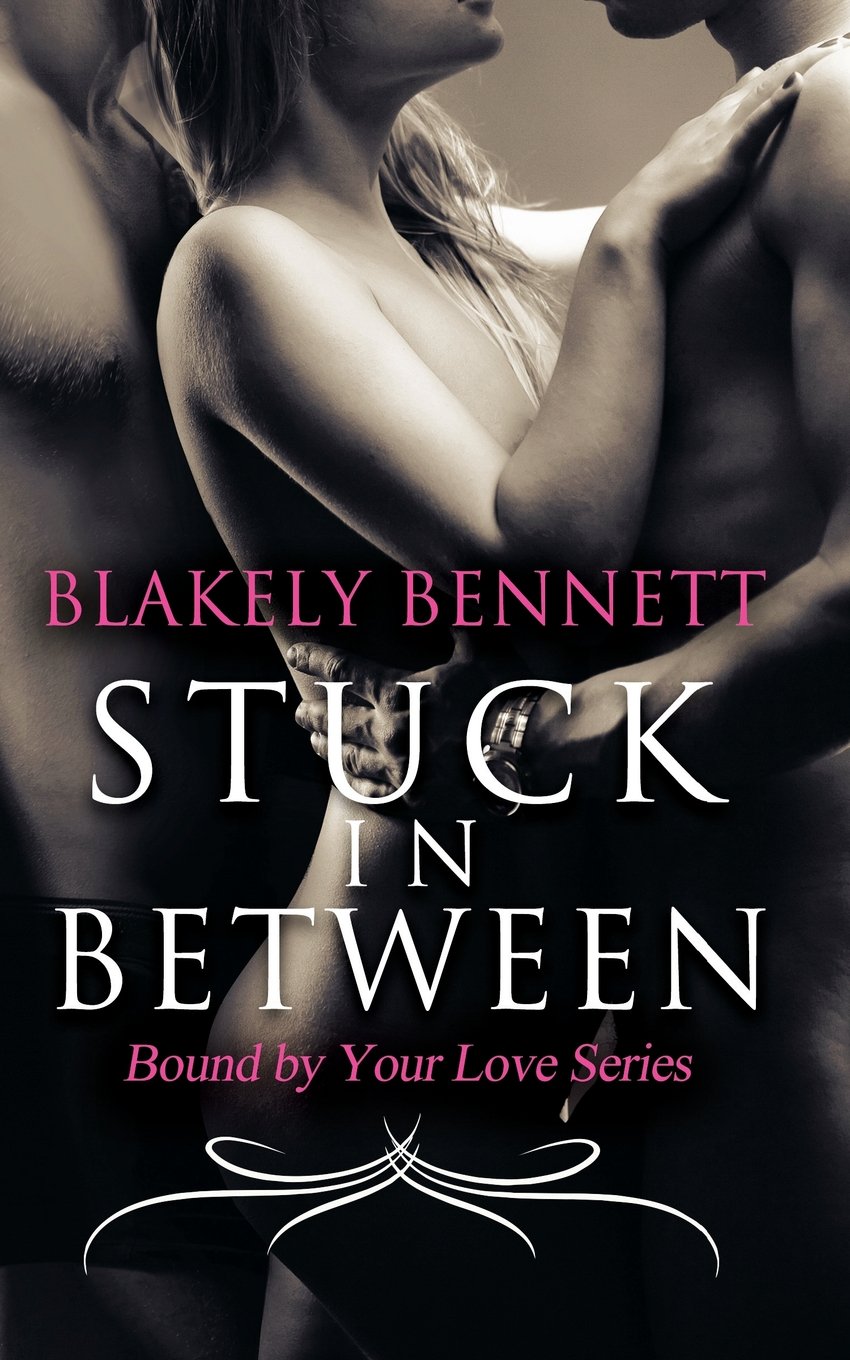 Welcome to the torrid world of Blakely Bennett, an author of erotic romance and suspense. A Florida native, she currently lives in Seattle. She graduated from Nova Southeastern University with a degree in psychology, which accounts for her particular interest in crafting the personalities, struggles, and motivations of her characters. She is an avid reader of many genres of fiction, but especially enjoys erotica and romance.
Welcome to the torrid world of Blakely Bennett, an author of erotic romance and suspense. A Florida native, she currently lives in Seattle. She graduated from Nova Southeastern University with a degree in psychology, which accounts for her particular interest in crafting the personalities, struggles, and motivations of her characters. She is an avid reader of many genres of fiction, but especially enjoys erotica and romance.
MJN: On your website, you state that you are an author of erotic
romance and erotic suspense. Can you educate me a bit about the distinction
between the two branches of the genre? Are there any mandatory built-in
components?
BB: Any good book has a bit of suspense
in it, which keeps you engage in the story, reading past the point you should
otherwise be in bed asleep. The difference between erotic romance (Bound by
Your Love Series) and erotic suspense (My Body Trilogy) is the same difference
you find between romance and suspense. In true romance, the protagonist and his
or her love interest end up together in the end. It’s a given. In suspense,
however, the ending is unpredictable and the not knowing adds to the tension.
What will come next, keeps you on the edge of your seat.
MJN: Many mainstream romance publishers won't touch material that
has an element of violence. Or even if violence is present, it has to be
depicted in the context of an S&M game in which the heroine has a say. And
yet, I find that the combination of pleasure and violence stimulates certain
parts in our brain. This is why novels by Marquis de Sade continue to disturb
people 200+ years later.
BB: I honestly don't worry about
what other people are doing. I just strive to write better and better with each
subsequent novel. I want my readers to feel all the emotions, including the hot
steamy sex, my protagonists are experiencing. As long as I do that, and do that
well, I don't think I need to be worried about the competition.
MJN: You have organized your novels in series. When an idea for a
novel occurs to you, do you know in advance if that will be a segment of a
particular series?
BB: I enjoy series myself and I write
what I would enjoy reading. It’s really that simple. If I like a novelist, I
tend to read all the books they have written especially if they write series.
MJN: With so much explicit material available in various formats, I
imagine, the readers have become quite desensitized, and things that used to
arouse and disturb people 30 years ago no longer do the trick. How does a modern
erotic writer maintain her competitive edge without slipping into gratuitous
silliness? (I'm referring to "Fifty Shades").
BB: I don’t agree that we are
desensitized. Good writing is good writing. If an author can make you feel what
is being written and strives for originality, I don’t think it ever gets old.
Each sex scene I write is different but I don’t feel the need to get harsher or
darker each time. Each character’s needs and desires are different and I honor
that.
MJN: You have co-authored with Dana Bennett. How does co-authoring
work in general? Is each author responsible for developing separate characters?
Is it always a 50/50 division of labor?
BB: I can’t speak for other co-authors
or other experiences. For Dana Bennett and me, writing The Demarcation of Jack,
we wrote in all kinds of ways. Sometimes we were side by side, as I typed and
we discussed. Sometimes I worked on a scene while he worked on another. One
time we recorded ourselves having an argument as Jack and Jenna (I was Jack)
and then I transcribed the fight. It was much faster to write together and
there was a lot more compromise too. However, we always read and edit each
other’s individual projects and act as a sounding board for each other. So in
some ways, we are always co-authoring.
Tuesday, May 12, 2015
Saved by the Bang: a Nuclear Comedy - available in paperback
Greetings, commies!
I am pleased to inform you that my latest release, an autobiographical satire Saved by the Bang: a Nuclear Comedy is now available in paperback via Sweet Cravings Publishing. A digital edition was made available earlier in January. For years my valued fans have been nagging me to write something autobiographical. I spent years researching and dramatizing the Anglo-Irish conflict. This time the setting for my novel is my native Gomel, a bustling riverfront city glowing with the fallout from the nuclear reactor. Saved by the Bang is by far my darkest, most candid and offensive piece.
Synopsis:
Welcome to 1980s Belarus, where Polish denim is the currency, “kike” is a pedestrian endearment, and second trimester abortion can be procured for a box of chocolates. Antonia Olenski, PhD, a catty half-Jewish pianist and leading cock tease of the Gomel Music Academy, wavers between her flamboyant composer husband Joseph and a chivalrous tenor Nicholas. The Chernobyl disaster breaks up the love triangle, forcing Antonia into evacuation in the cumbersome company of her ugly eight-year old daughter Maryana. After a summer of cruising through Crimean sanatoriums and flirting with Afghan veterans, Antonia starts pining for the intrigues and scandals of the Academy. When the queen of cats finally returns home, she finds that another woman is wearing her crown. In the afterglow of nuclear fallout, artistic, ethnic and sexual rivalries emerge. How far will Antonia go to reclaim her throne?
___________________________________
Saturday, May 9, 2015
Tirgearr Publishing - great books without borders
Today I am pleased to welcome Kemberlee Shortland, the founder and CEO of a small Irish-based press Tirgearr Publishing. I have read and reviewed several novels by Tirgearr authors. Today Kemberlee talks about the challenges and rewards of running a high-quality digital press.
KS: Our mission is to publish awesome books to readers all over the world. We don't have a target country in mind. Just targeting readers who like great books set all over the world, by authors living all over the world.
KS: Incorrect. We are digital-first. We have several books out in print and have several more scheduled for release this year. For wholesalers, our print books are available on a world market through the likes of Ingrams and Gardeners, or by direct order from ourselves. Readers can buy print books through Amazon, or they can order through their local bookstores with the book's ISBN.
KS: As above, we do have print books available, and more coming available throughout the year. We do feel it's important to network with others in the industry. After all, we all have the same goal...publish great books and put them before readers. We all have different methods in reaching that goal, which makes the business exciting. We feel it's important to be friends with similar houses to our own too. Networking is essential to success. The old saying "A rising tide lifts all boats" is good to remember.
KS: Every book and every author is different so each require different marketing plans because of differing target audiences. We could not apply the same marketing plan used for romance as for horror. The readers are completely different, just as readers would be different if the book was a cross genre Horror Romance. We have basic guidelines for marketing in general, but then add specific areas for the types of books we publish. That would include any number of promotional sites, blogs, promotional companies which organize tours, the types of tours, interviews, reviewers, etc. We're also very lucky to have an amazing team of authors who share their experiences and pass on recommendations for things that worked for them. We're back to tides and boats here :-) We also encourage authors to contact their local bookshops once their books are available in print to get those shops to stock their books as a local author. Local bookstores love getting local authors on their shelves.
KS: Readers love series books. If someone is submitting a book in a series, we always prefer to take the series from book one, and have a basic synopsis for the next couple books in the series, or trilogy. In some instances, we will contract more than one book at a time, but those contract offers are generally given to in-house authors whose reputation and sales figures are known to us. But chances are good, if you're an author who's submitting the first book in a series to us, if we take the first book, we'll be interested in the next books in the series, but will consider them as they're being finished. The only exception to the rule would be if an author comes to us with the first book in a series which has been completed. If we like book one, we'll ask to see the other two books as well, and then *may* offer on the series as a whole, as long as all the books stand up consistently against each other. Some authors have submitting single title books, which we've contract, only later to discover they've turned the book into a series.
MJN: You were born in the US
and have been living in Ireland, and you move quite freely across the
proverbial Pond. Your Irish side is incorporated into the name and the logo of
your press. Is your mission to bring Irish themed novels to the American
market, or American-themed books to the Irish market? Is it to establish a
bridge between the two cultures? Or is it just to tell stories without borders?
KS: Our mission is to publish awesome books to readers all over the world. We don't have a target country in mind. Just targeting readers who like great books set all over the world, by authors living all over the world.
MJN: Currently you produce
digital books only. Are there any plans to add paperbacks for select titles? I
work with a several small publishers that have a POD/e-book model, and they all
say that e-book sales outnumber the paperback sales by far. However, paperbacks
do come in handy at author events.
KS: Incorrect. We are digital-first. We have several books out in print and have several more scheduled for release this year. For wholesalers, our print books are available on a world market through the likes of Ingrams and Gardeners, or by direct order from ourselves. Readers can buy print books through Amazon, or they can order through their local bookstores with the book's ISBN.
MJN: Is it important for a digital press editors
to network with other professionals industry and attend book fairs, even though
you don't have hard copies to showcase?
KS: As above, we do have print books available, and more coming available throughout the year. We do feel it's important to network with others in the industry. After all, we all have the same goal...publish great books and put them before readers. We all have different methods in reaching that goal, which makes the business exciting. We feel it's important to be friends with similar houses to our own too. Networking is essential to success. The old saying "A rising tide lifts all boats" is good to remember.
MJN: One of your mission statements
which is probably very appealing to authors is that you come up with a
customized marketing plan for each author. Can you give me an example of such a
plan? For instance, if an author wrote a romance set during WWII, do you reach
out to specific magazines and blogs that review material of that nature?
KS: Every book and every author is different so each require different marketing plans because of differing target audiences. We could not apply the same marketing plan used for romance as for horror. The readers are completely different, just as readers would be different if the book was a cross genre Horror Romance. We have basic guidelines for marketing in general, but then add specific areas for the types of books we publish. That would include any number of promotional sites, blogs, promotional companies which organize tours, the types of tours, interviews, reviewers, etc. We're also very lucky to have an amazing team of authors who share their experiences and pass on recommendations for things that worked for them. We're back to tides and boats here :-) We also encourage authors to contact their local bookshops once their books are available in print to get those shops to stock their books as a local author. Local bookstores love getting local authors on their shelves.
MJN: It's very popular among
genre writers to come up with an entire series featuring the same characters -
or just the same setting. You state on your submissions page that each book is
contracted on book-by-book basis. Personally, I am always afraid to commit to
writing a series, because sometimes the storyline runs its course, and you have
to squeeze yourself for inspiration to complete the series.
KS: Readers love series books. If someone is submitting a book in a series, we always prefer to take the series from book one, and have a basic synopsis for the next couple books in the series, or trilogy. In some instances, we will contract more than one book at a time, but those contract offers are generally given to in-house authors whose reputation and sales figures are known to us. But chances are good, if you're an author who's submitting the first book in a series to us, if we take the first book, we'll be interested in the next books in the series, but will consider them as they're being finished. The only exception to the rule would be if an author comes to us with the first book in a series which has been completed. If we like book one, we'll ask to see the other two books as well, and then *may* offer on the series as a whole, as long as all the books stand up consistently against each other. Some authors have submitting single title books, which we've contract, only later to discover they've turned the book into a series.
Monday, May 4, 2015
Service Before Self - novel by Tegon Maus
You think all that bullying, hazing, posturing, chest-beating and battle for dominance is over when you graduate high-school? Think again! For some people, adult life is one big smelly locker-room. Welcome to the world of Handy Dandy Services, where sweat, cigarette smoke and testosterone flow freely. The motto of the company is humorously pompous "Service Before Self", denoting self-sacrifice, even martyrdom. And sure enough, there is an element of martyrdom to what the employers endure on daily basis.
Meet Toby, a down-on-his-luck rookie who joins the team for lack of more attractive job prospects. In a post-recession world, it's not uncommon to work jobs that are far from intellectually stimulating. I'm sure many readers can relate to the scenario. He is assigned to assist Ryan, a sullen veteran. At first Ryan cold-shoulders his green partner, but quickly morphs into a mixture of bully, mentor and confidant.
The author understands human nature keenly and bitterly. His characters are seemingly unsophisticated men, yet they make very astute observations about the human nature. Servicemen are the unsung heroes. They are perceived almost like inanimate objects by those who use their services, breathing robots. "If you're in a nice house and looking around they think you're casing the place. If you're in a crap house, they think you're looking down your nose at them. Never give them the chance to think that. Never react to what you see, what you hear, what you smell." Ironically, for Toby, it becomes increasingly difficult not to react to his partner. Ryan becomes a source of fascination, frustration and terror for the young rookie.
The novel was clearly written with deep knowledge of the handyman's mentality and the human nature in general. It's a disturbingly funny belated coming-of-age story.
The novel was clearly written with deep knowledge of the handyman's mentality and the human nature in general. It's a disturbingly funny belated coming-of-age story.
___________________
About the Author
Tegon Maus lives in California with his wife of 40+ years. A veteran entrepreneur who made a career in remodeling, he is intimately acquainted with the psyche of a contractor. Please visit his website for more of his quirky dark writing.
Saturday, May 2, 2015
Heath Alberts - indie author, digital ninja, lifelong entrepreneur and, above all, a blissful husband
Greetings, commies! I have a very special guest, Heath Alberts, a digital marketing guru, indie author and entrepreneur. Developing and implementing new concepts comes naturally to him, and he applies them in all his creative endeavors. His beautiful multi-talented wife Wanda is an active partner in all his endeavors.
MJN: There are so many speculative / sci-fi novels out. It's becoming harder and harder to come up with original ideas. What is your scientific/fantasy platform? Meaning, what pool of knowledge do you go to while cultivating plots? I imagine, you have seen every Twilight Zone episode.
MJN: Your wife has a strong presence in your creative life. Even your website is for the two of you - Heath and Wanda. I must say, it's not surprising. She plays the flute, oboe and clarinet. Would you call yourself a golden couple of digital media?
MJN: One of
the benefits of publishing your work independently in a digital form is that
you can make changes. One thing I struggle with as an author with a
third-party publisher is that I never consider my work finished. I always want
to go back and make changes to the final manuscript. At what point do you
say, "Enough is enough. No more revisions."
HA: When
I wrote my first book, it was a train wreck. The story was there. The story was
good. The execution left a great deal to be desired. The problem was that I was
too inexperienced to realize just how bad it was. As I continued creating, I
began to develop a set of rules for birthing a book. In fact, once these were
developed, I ended up going back and re-writing/editing/releasing my earlier
works so that I wouldn’t have to cringe at the thought of someone seeing them.
I have a tiny group of beta readers, who function on different levels.
One is a housewife in Texas whom I have known for most of my life. She works
the ‘how does this make me feel?’ angle. My wife and my mother are the
grammarians, the punctuation police, and also point out inconsistencies. My
most valuable asset is a fellow who can do all of these things, as well as spot
a loophole from a mile away. The guy is – literally – the smartest person I
know, and his help and guidance have made my works far better things.
In the end, I find a point that feels right, and call the work done. I
know I could always add more, but I just force myself to walk away. So far,
I’ve gotten away with that. Part of the reason that I can is that I begin a
story with a concept, and then just sort of let it lead me where it will. A lot
of mystery writers do this, which makes sense in their genre. Having written
only one mystery, I can say that it does
work better there. It’s a heck of a lot more tumultuous outside of that genre.
Still, I can’t imagine being handcuffed to a non-amorphous story. I don’t think
I would have as much fun writing if I did that to myself – right or wrong.
MJN: There are so many speculative / sci-fi novels out. It's becoming harder and harder to come up with original ideas. What is your scientific/fantasy platform? Meaning, what pool of knowledge do you go to while cultivating plots? I imagine, you have seen every Twilight Zone episode.
HA: I can’t remember who
said it, but there was a famous inventor, or scientist, or someone, who made
the statement about a century ago that everything worth inventing had been
invented already. At one time, I felt exactly as you’ve outlined above. Until I
realized that famous author X was sort of putting his own spin on movie Y from
thirty years ago, etc. This gave me hope. Now, I try to take a potentially
concept, and put my own unique spin on it. In some ways, it might have ‘been
done’, but in others I’m creating something new with new twists.
I’ve
actually seen one or two ‘Twilight Zone’ episodes, but not too many. I’m also a
fussy sci-fi watcher, believe it or not. Mostly, I read. My pool of knowledge
comes from fiction and non-fiction alike. I was fortunate to have a love of
reading and learning instilled in me at a young age by bot of my parents, and
especially by my Grandfather (who worked on myriad NASA projects as an
Engineer, and was a voracious learner). To this day, I also can’t stop
learning. I have a compulsion to absorb. That may be why no one will play
trivia games with me. What’s sad is I can sing entire obscure commercials from
the 70’s, but I often can’t remember what I did this morning.
My
favorite authors include Terry Pratchett, Neil Gaiman, David Mitchell,
Christopher Moore, Douglas Coupland, Neal Stephenson, J.R.R. Tolkien, Haruki
Murakami, Michael Connelly, Douglas Preston, Lincoln Child, and Ayn Rand. So,
reading-wise, I’m pretty much all over the place.
I also
find that there is ALWAYS something to be learned in nearly every facet of
everyday life. I Hoover in tidbits, mostly because I never know when it might
be useful to call upon them.
MJN: I was
captivated by the cover of TheBattery Man featuring an
android figure. The novel is told from the point of view of a robot in a
post-apocalyptic setting where biological life is impossible. And yet
your protagonist, who is also the speaker, functions according to human
principles. Are machines more human than the humans who created them?
HA: This contains a
spoiler, but it’s necessary to answer the question. ‘The Battery Man’ began as
a weekend self-test in writing a first-person narrative. Since that time, I’ve
continued the practice. Each time giving no name to my protagonist, nor much
information about them, personally (an anthology of these is in the works as I
write this, with the intent of releasing it in late fall/early winter). This is
intentional, as I feel it allows the reader to identify with them more acutely.
This particular work was actually meant to be written from the perspective of
an android who had been imbued with the capability of comprehending the human
condition during the final moment of his handler’s life (though he doesn’t
realize it’s happened right away). It’s also meant to drive the reader to think
about the cyclical nature of historical events in our collective lives, with
most of the negative ones among them being entirely avoidable.
I’ve
always been a devoted follower of William Gibson’s work. As a boy I read
‘Neuromancer’ and was blown away by the concept of Wintermute (the AI in the
story’s background). That concept has stuck with me, and actually played a
significant role in ‘Last Rights’ (though in an unconventional manner by
comparison).
If you’re
a geek like me, then you’ll probably be familiar with the concept of a Turing
test. Alan Turing once posited that the true test of an artificial intelligence
was whether it could pass as human or not. In essence, it would have to be
un-governed by paradoxical happenings (remember HAL in 2001?), and also possess
the capability to correctly choose how to interact with the individual or
individuals interacting with it. Should it be empathetic? Should it be
incensed? Should it show sympathy? Anger? Frustration? Et cetera.
I think
that, inevitably, the capability to pass a Turing test will come to pass. The concern of all those who ponder self-sentience
in machines is that they’ll realize that the human race is an ugly, broken
thing and then proceed to determine whether our presence is a positive or
negative thing when considered with regard to everything after the moment
sentience is achieved. Then, in my mind, we’re pretty much screwed, and
Hollywood has it right.
MJN: Your wife has a strong presence in your creative life. Even your website is for the two of you - Heath and Wanda. I must say, it's not surprising. She plays the flute, oboe and clarinet. Would you call yourself a golden couple of digital media?
HA: My wife is, for the
record, an amazing and singular individual. She and I are a rare pair of
individuals who live a blissful and symbiotic life. I’m outwardly mental for
her, and I’d like to think that our marriage is an example of how to do a thing
right. It’s built on a solid footing of trust, mutual respect and admiration,
and out and out love and awe for one another. I find myself just looking at
her, and thinking, “How in the world am I lucky enough to have this woman in my
life?” I honestly feel spoiled. She’s amazing, she’s talented, and she’s done
more in her life at 36 than most will do in the entirety of their own. We’ve
also been apart for only three nights in the 20+ years that we’ve been
together. We’d just as soon be in one another’s company than anyone else’s.
That’s saying something, when you compare that sentiment to other marriages
surrounding us each day.
When I
chose to put the photo of the two of us on my first novel, some people thought
it a bit odd. The reality is we’re a team. If I’m a success, then I know that
she’s a part of the reason for that being so. Since then, I’ve used that photo
on all of my works and social media outlets. It’s become my ‘brand’ or
‘trademark’. I have no embarrassment whatsoever in giving her all she is due,
and letting the world know how important she is to me.
Within our
personal business, she handles all of the web site design and implementation.
For all that I myself am blessed to know, she knows many of the things that I
don’t. This makes the symbiosis of our relationship all the more complete.
MJN: One
time you mentioned to me in a mysterious voice that you have a series of other
businesses and that training employees was second nature to you. Can you
tell us about the nature of your other endeavors? I assume, Digital Ninjas
is one of them.
HA: I like to learn as I
go, and trying new things is something I love. Digital Ninjas Media’s creation
was one, certainly. We’ve also done a house flip, and at one time I obtained an
Illinois Real Estate License just to see what it was all about. I write, I blog,
I speak. I’m active in politics (most notably the grassroots ‘Represent.US’
movement). My wife has a not-for-profit called ‘Tailored to Hire’ that
functions to provide spam-free, genuine job listings to folks in our area that
I help out with a bit as well. It’s grown far larger than she ever imagined,
and is a testament to her tireless efforts to assist others. The program not
only posts jobs, it also provides mock interviews, free resume development,
transportation logistics to interviews, workplace attire, and ties in to the
food pantry which is hosted by her church (which the program is chartered
through).
I like to
help folks to help themselves, so I find myself offering assistance in the
forms of time, advice, administration of a large series of specialized Facebook
groups that I’ve developed, etc. I like to believe that there is an untapped
good in all of my fellow men and women, and if I can help them to let it out to
shine, then I’ve done what I should be doing. Sometimes, all people need is
someone to believe in them, and to show them the door to opportunity.
With the
above in mind, I’ve edited a number of works for friends, and even assisted one
in taking his raw memories about his addiction, and subsequent recovery, and
turning it into a viable book. I like doing these things, without expectation
of compensation, because I feel like they’re meaningful and worthwhile. I wish
others took the time to give of themselves, because it not only feels amazing,
it also makes the world a better place for someone other than oneself.
At one
point I was asked to contribute to a then-budding blog about what was good in
my hometown of Rockford, Illinois. At that time, it had found itself at the top
of almost every list that a city never wants to find itself on. Still, the
founder believed that a light needed to shine, and so he took up the cause. I
was privileged to get to work with him. I didn’t know what to contribute, so I
just sort of did what felt right. A few weeks ago, Digital Ninjas Media took
sole ownership of The Rockford Blog (the founder had moved, and was in the
midst of building a richer life for himself, but also didn’t want to see his
blossoming work simply fold). It will be a continued labor of love, but one I
look forward to carrying on. I just hope that I, and the other contributors,
can do the founder proud. He’s a good man, and the world needs a hell of a lot
more like him.
Some
stranger facts: I love to sing karaoke, and once had the opportunity to do so
in the 4-floor stage area at The Mall of America in front of thousands of
people. It was awesome. I also have a satirical page for my alter-ego (Weird
Uncle Pete).
My day job
consists of running a multi-million dollar contract manufacturing enterprise
that serves a multitude of industries nationwide.
I’m a busy
guy, but I love it. I had my first job at 12, and during my late teens worked
four jobs and 90+ hour weeks. My resume makes no logical sense, and I’ve worked
in so many fields that I have lots of fodder for stories. My goal has always
been to retire at fifty, and find something I love to do with my time. I’ve
decided that writing and assisting others is that thing, if either of them will
have me.
Subscribe to:
Comments (Atom)

